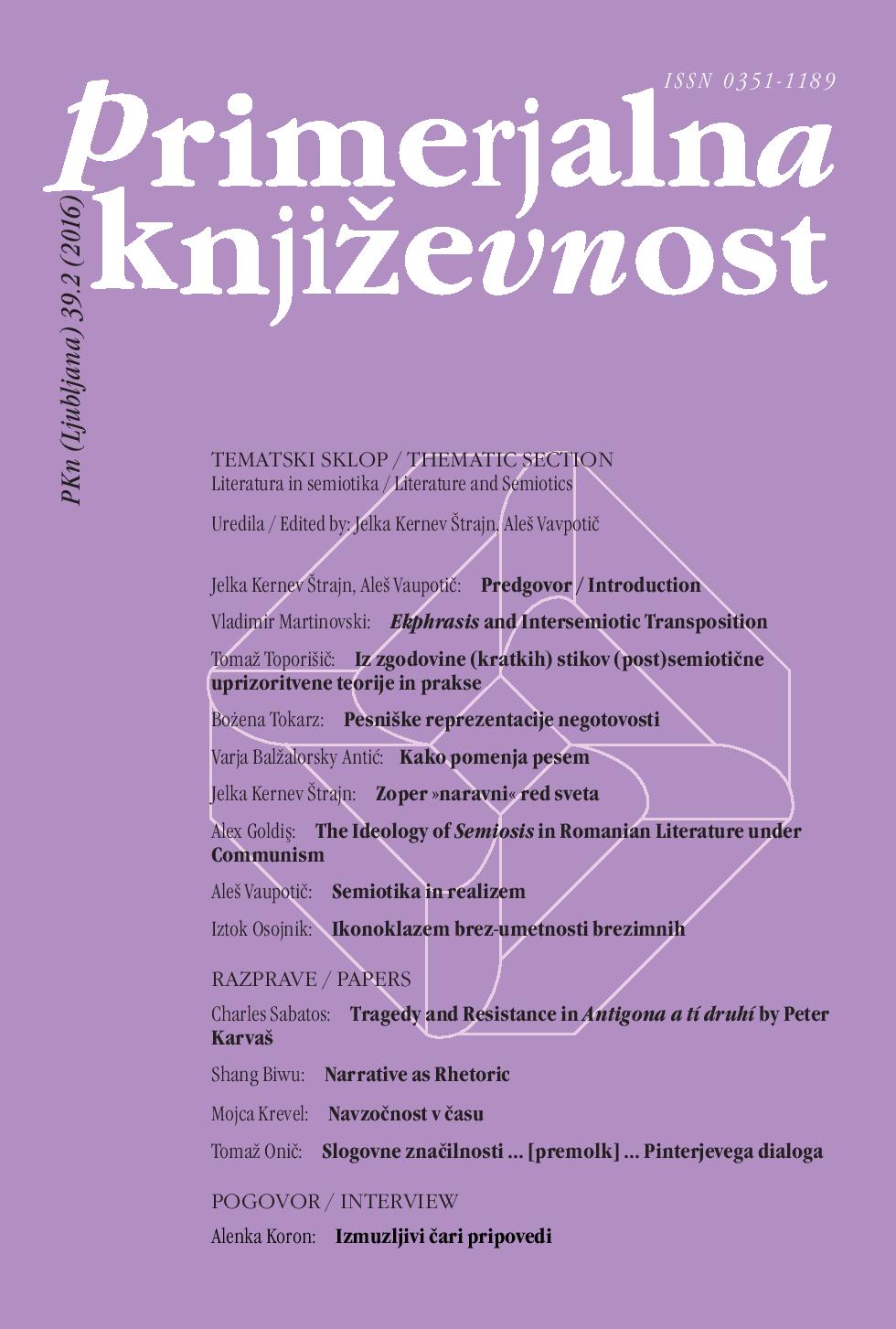Tragedy and Resistance in Antigona a tí druhí by Peter Karvaš
Keywords:
Slovak literature, drama, tragedy, literary characters, Antigona, Karvaš, PeterAbstract
This article analyzes the socialist-era adaptation of Antigone by Slovak playwright Peter Karvaš (Antigone and the Others, 1962) through some of the most influential theoretical interpretations of the classical text by Hegel, Kierkegaard, and Lacan.References
Burian, Jarka. “Post-War Drama in Czechoslovakia.” Educational Theatre Journal 25.3 (1973): 299–317.
French, Alfred. Czech Writers and Politics, 1945–1969. Boulder: East European Monographs, 1982.
Hegel, Georg Wilhelm Friedrich. Phenomenology of Spirit. New York: Oxford University Press, 1977.
Karvaš, Peter. Antigona a tí druhí. Bratislava: DILIZA, 1961.
Kierkegaard, Søren. Either/Or. Princeton: Princeton University Press, 1987.
Kundera, Milan. The Curtain. New York: Harper, 2006.
Lacan, Jacques. The Seminar of Jacques Lacan, Book VII. New York, W. W. Norton, 1988.
Liehm, Antonin J. The Politics of Culture. New York: Grove Press, 1968.
Lajcha, Ladislav. Dramatický svet Petra Karvaša. Bratislava: Národné divadelné centrum, 1995.
Lukács, Georg. The Historical Novel. London: Merlin Press, 1962.
Marčok, Viliam. Dejiny slovenskej literatúry III. Bratislava: Literarné informačné centrum, 2006.
Rampák, Zoltán. “Antigona a ti druzí – jako podobenství.” In Peter Karvaš. Antigona a ti druzí. Translated by Sergej Machonin. Prague: Orbis, 1962. 101–107.
Steiner, George. Antigones. New Haven: Yale University Press, 1984.


